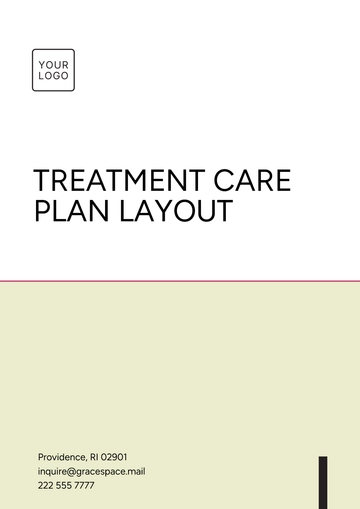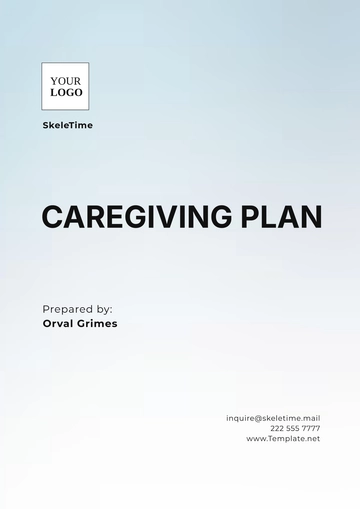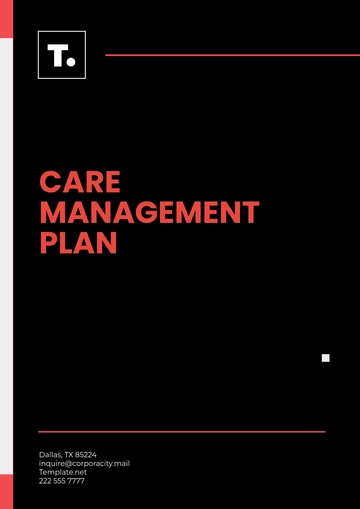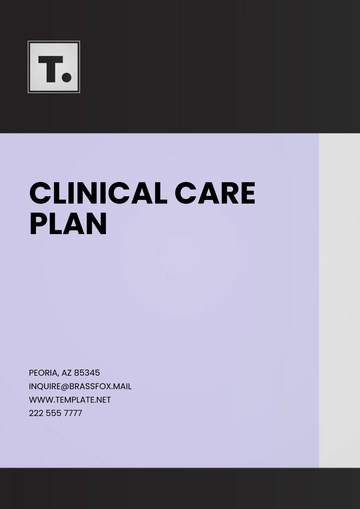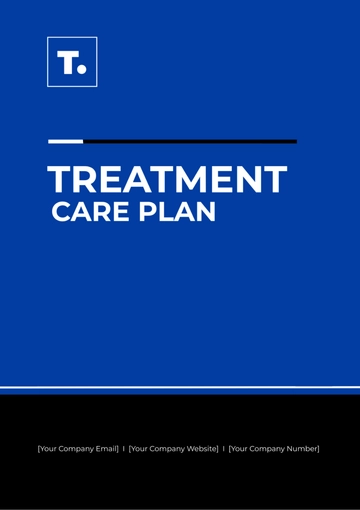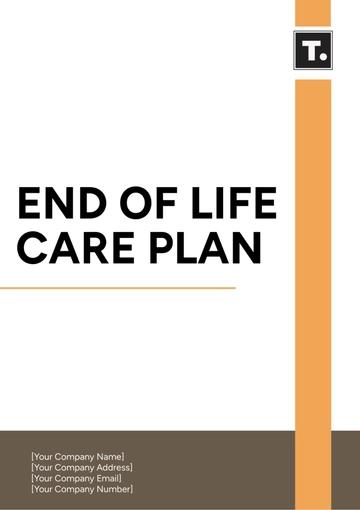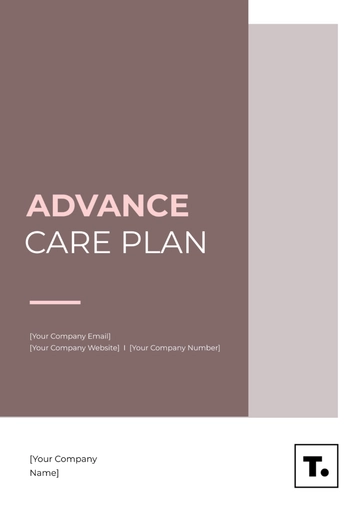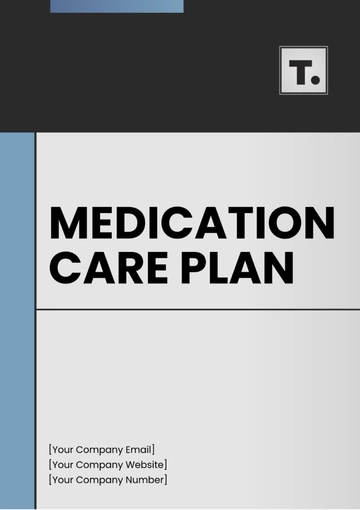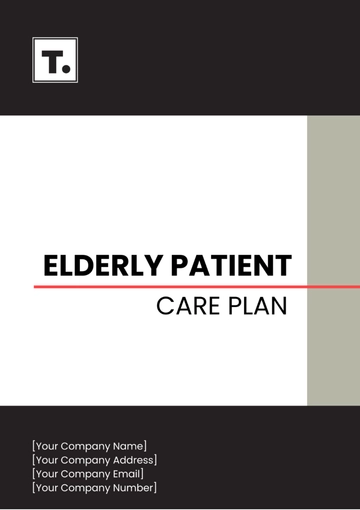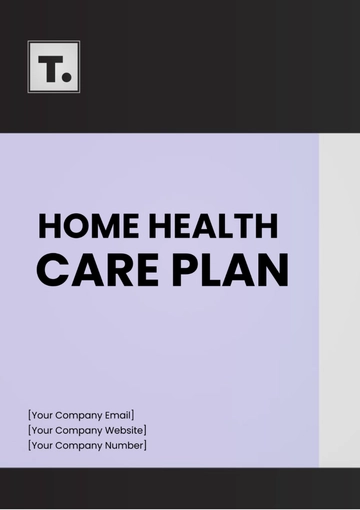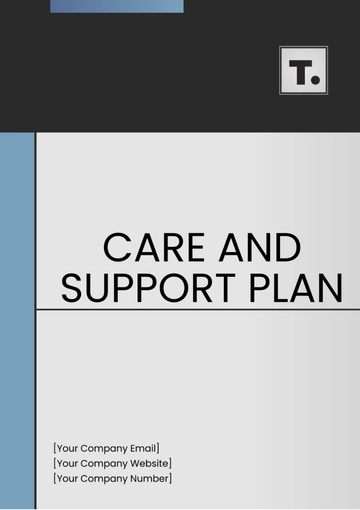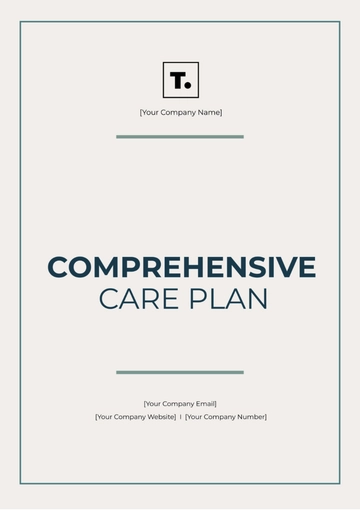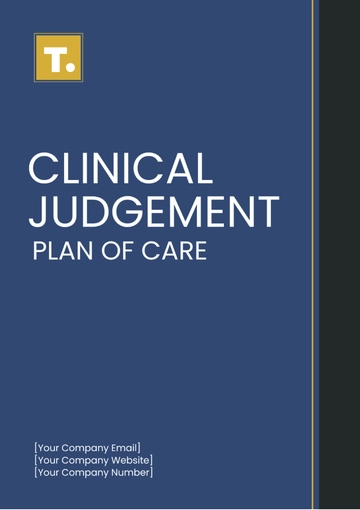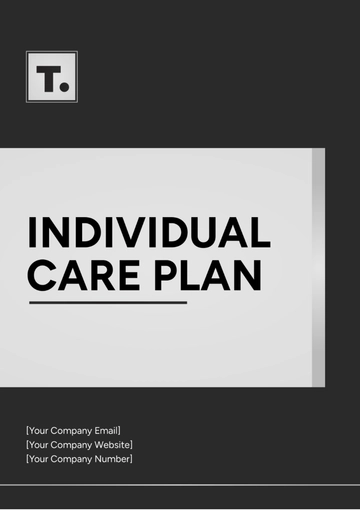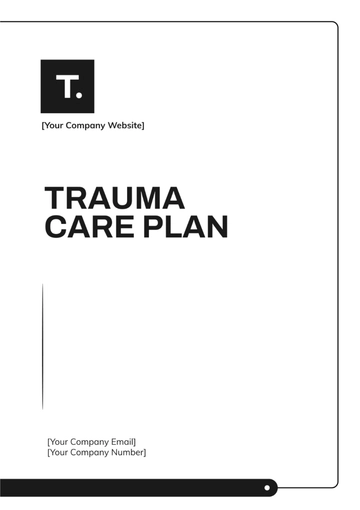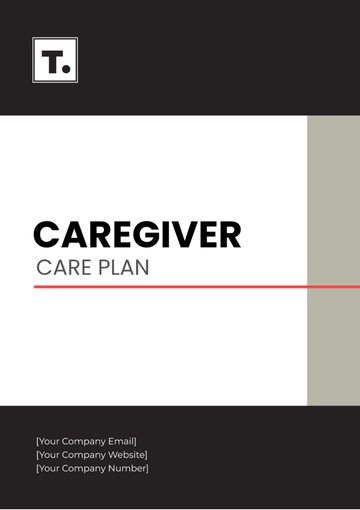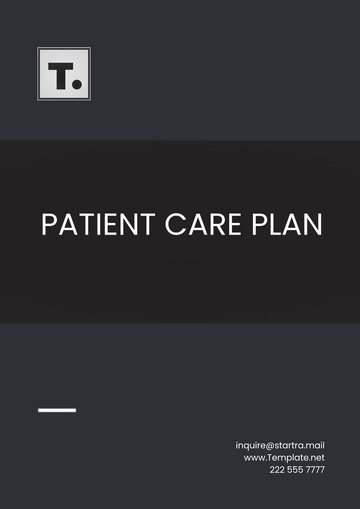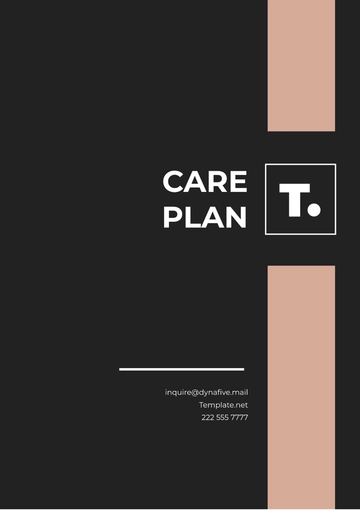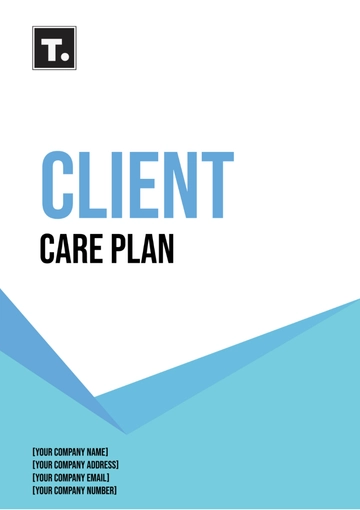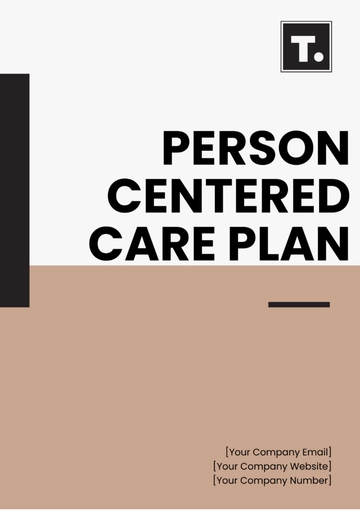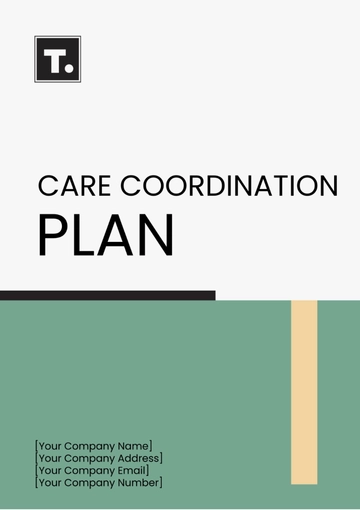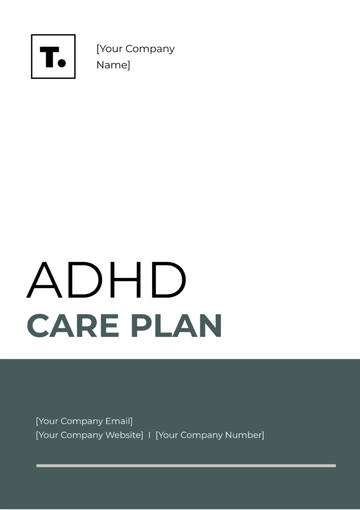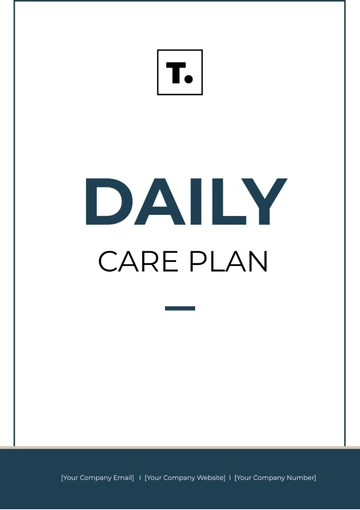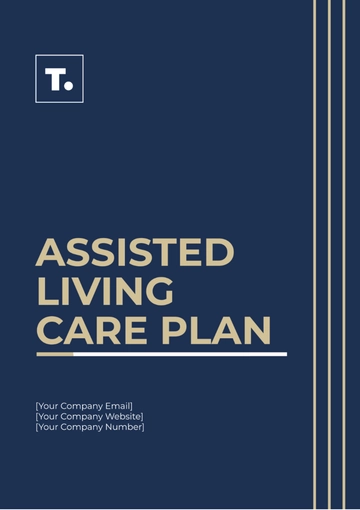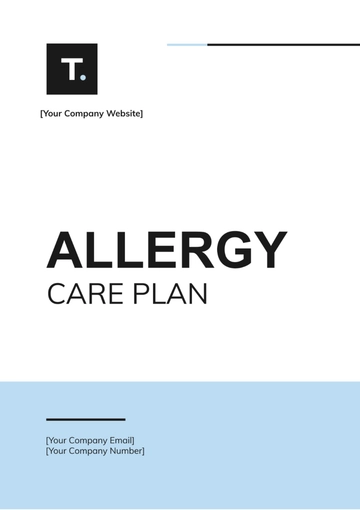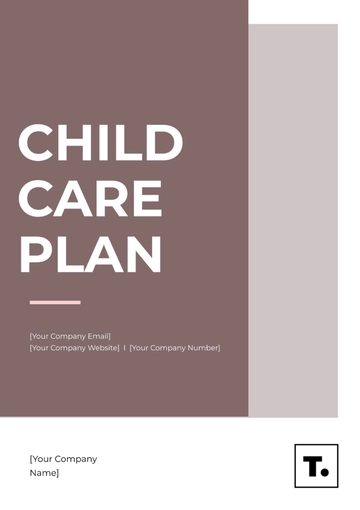Free Treatment Care Plan
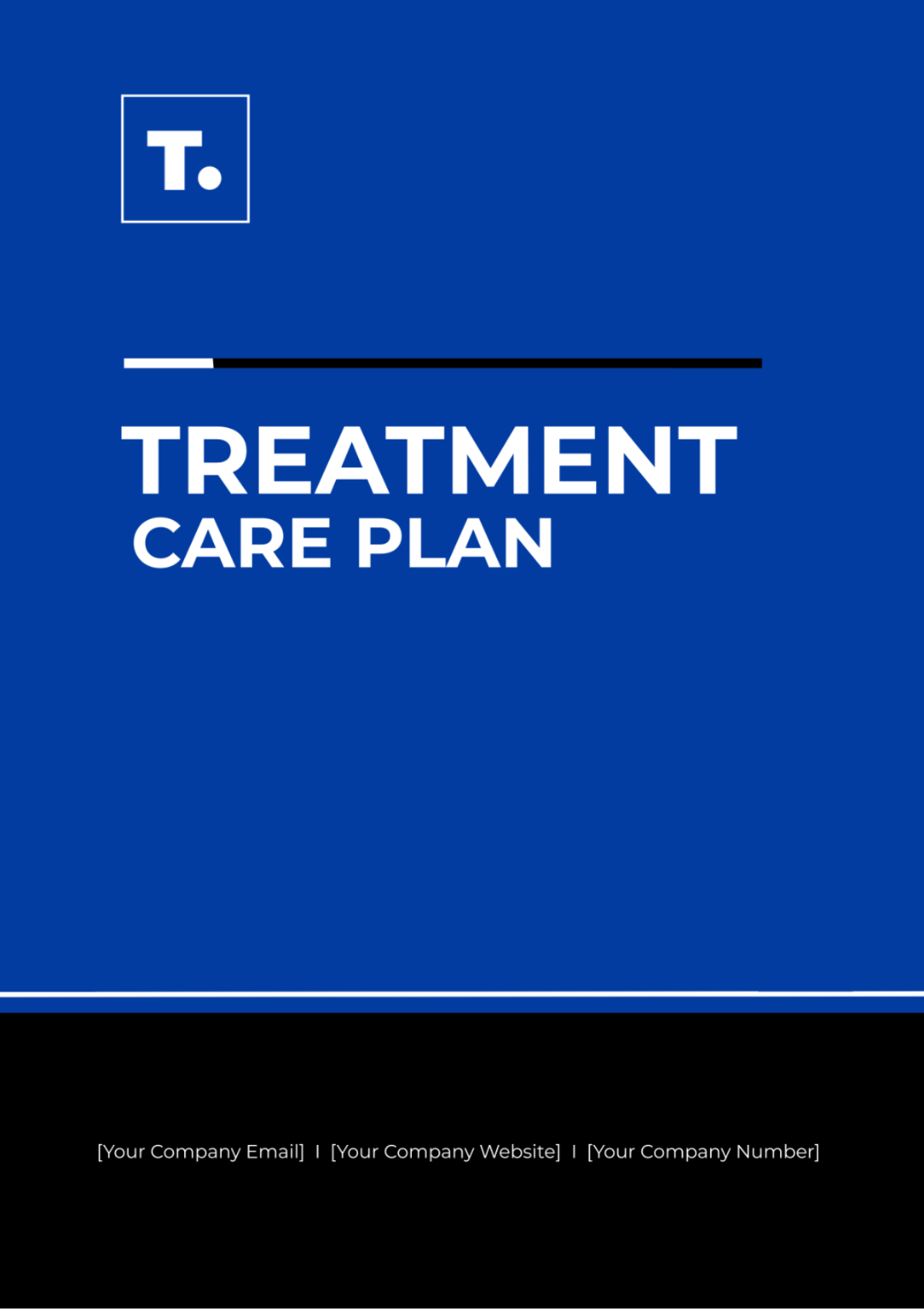
Prepared by: | [YOUR NAME] |
Company: | [YOUR COMPANY NAME] |
Address: | [YOUR COMPANY ADDRESS] |
Date: | [DATE] |
I. Patient Information
Name: John Doe
Date of Birth: January 1, 2025
Medical Record Number: 123456789
Contact Information: 222 555 7777
Primary Care Physician: Dr. Jane Smith
II. Assessment Summary
Diagnosis: Type 2 Diabetes, Hypertension, Coronary Artery Disease
Date of Diagnosis: February 15, 2050
Symptoms: Fatigue, frequent urination, chest pain, high blood pressure
Medical History: Obesity, family history of diabetes and heart disease
Current Medications: Metformin, Lisinopril, Atorvastatin
III. Goals and Objectives
Short-term Goals:
Stabilize blood glucose levels to 80-130 mg/dL within the next 3 months.
Achieve blood pressure control of less than 130/80 mmHg within 2 months.
Reduce LDL cholesterol to below 100 mg/dL within 4 months.
Long-term Goals:
Maintain HbA1c level below 7% over the next year.
Prevent complications related to diabetes and heart disease over the next 5 years.
Achieve and maintain a healthy weight (BMI 18.5-24.9) within the next year.
IV. Interventions and Strategies
Diet and Nutrition:
Follow a balanced diet rich in whole grains, fruits, vegetables, lean proteins, and healthy fats.
Limit intake of sugar, salt, and saturated fats.
Consult with a registered dietitian bi-monthly for personalized meal planning.
Physical Activity:
Engage in at least 150 minutes of moderate-intensity aerobic exercise per week.
Incorporate strength training exercises twice a week.
Schedule regular follow-ups with a physical therapist to monitor progress.
Medication Management:
Continue current medications as prescribed.
Regularly monitor blood glucose levels and blood pressure at home.
Schedule quarterly visits with the endocrinologist and cardiologist to assess medication efficacy.
Lifestyle Modifications:
Implement stress management techniques such as meditation, yoga, and deep breathing exercises.
Attend a smoking cessation program if applicable.
Limit alcohol intake to moderate levels (up to one drink per day for women and two for men).
V. Medications
Metformin: 500 mg twice daily
Lisinopril: 10 mg once daily
Atorvastatin: 20 mg once daily
VI. Roles and Responsibilities
Patient: Adhere to the treatment plan, attend all scheduled appointments, and communicate any concerns or side effects to healthcare providers.
Family/Caregivers: Provide support, assist with medication management, and encourage lifestyle changes.
Healthcare Providers: Monitor patient’s progress, adjust treatment plan as needed, and provide education and resources.
VII. Timeline and Milestones
Initial Assessment: January 2050
First Follow-up Appointment: April 2050
Quarterly Review: July 2050, October 2050
Annual Evaluation: January 2051
VIII. Follow-up and Monitoring
Blood Glucose Monitoring: Daily at home, with results reviewed during each visit.
Blood Pressure Checks: Weekly at home, with results reviewed during each visit.
Quarterly Lab Tests: HbA1c, lipid profile, and kidney function tests.
Annual Comprehensive Exams: Eye exam, foot exam, and cardiovascular assessment.
IX. Evaluation and Outcomes
Success Criteria:
Blood glucose levels consistently within target range.
Blood pressure and cholesterol levels within target ranges.
No hospitalizations or major complications related to diabetes or heart disease.
Expected Outcomes:
Improved quality of life and daily functioning.
Reduced risk of long-term complications such as neuropathy, retinopathy, and cardiovascular events.
Sustainable lifestyle changes leading to overall better health.
X. Support Services
Diabetes Education Program: Monthly workshops on diabetes management.
Cardiac Rehabilitation: Supervised exercise program and education.
Support Groups: Monthly meetings for patients with chronic illnesses.
Community Resources: Information on local fitness classes, healthy cooking classes, and mental health services.
- 100% Customizable, free editor
- Access 1 Million+ Templates, photo’s & graphics
- Download or share as a template
- Click and replace photos, graphics, text, backgrounds
- Resize, crop, AI write & more
- Access advanced editor
Create the perfect Treatment Care Plan with Template.net's fully customizable and editable template. Our AI Editable Tool allows for seamless adjustments to fit every patient’s unique needs. Simplify your workflow and enhance patient care with this intuitive, user-friendly solution designed for healthcare professionals. Experience the ease of precise and efficient planning today.
You may also like
- Finance Plan
- Construction Plan
- Sales Plan
- Development Plan
- Career Plan
- Budget Plan
- HR Plan
- Education Plan
- Transition Plan
- Work Plan
- Training Plan
- Communication Plan
- Operation Plan
- Health And Safety Plan
- Strategy Plan
- Professional Development Plan
- Advertising Plan
- Risk Management Plan
- Restaurant Plan
- School Plan
- Nursing Home Patient Care Plan
- Nursing Care Plan
- Plan Event
- Startup Plan
- Social Media Plan
- Staffing Plan
- Annual Plan
- Content Plan
- Payment Plan
- Implementation Plan
- Hotel Plan
- Workout Plan
- Accounting Plan
- Campaign Plan
- Essay Plan
- 30 60 90 Day Plan
- Research Plan
- Recruitment Plan
- 90 Day Plan
- Quarterly Plan
- Emergency Plan
- 5 Year Plan
- Gym Plan
- Personal Plan
- IT and Software Plan
- Treatment Plan
- Real Estate Plan
- Law Firm Plan
- Healthcare Plan
- Improvement Plan
- Media Plan
- 5 Year Business Plan
- Learning Plan
- Marketing Campaign Plan
- Travel Agency Plan
- Cleaning Services Plan
- Interior Design Plan
- Performance Plan
- PR Plan
- Birth Plan
- Life Plan
- SEO Plan
- Disaster Recovery Plan
- Continuity Plan
- Launch Plan
- Legal Plan
- Behavior Plan
- Performance Improvement Plan
- Salon Plan
- Security Plan
- Security Management Plan
- Employee Development Plan
- Quality Plan
- Service Improvement Plan
- Growth Plan
- Incident Response Plan
- Basketball Plan
- Emergency Action Plan
- Product Launch Plan
- Spa Plan
- Employee Training Plan
- Data Analysis Plan
- Employee Action Plan
- Territory Plan
- Audit Plan
- Classroom Plan
- Activity Plan
- Parenting Plan
- Care Plan
- Project Execution Plan
- Exercise Plan
- Internship Plan
- Software Development Plan
- Continuous Improvement Plan
- Leave Plan
- 90 Day Sales Plan
- Advertising Agency Plan
- Employee Transition Plan
- Smart Action Plan
- Workplace Safety Plan
- Behavior Change Plan
- Contingency Plan
- Continuity of Operations Plan
- Health Plan
- Quality Control Plan
- Self Plan
- Sports Development Plan
- Change Management Plan
- Ecommerce Plan
- Personal Financial Plan
- Process Improvement Plan
- 30-60-90 Day Sales Plan
- Crisis Management Plan
- Engagement Plan
- Execution Plan
- Pandemic Plan
- Quality Assurance Plan
- Service Continuity Plan
- Agile Project Plan
- Fundraising Plan
- Job Transition Plan
- Asset Maintenance Plan
- Maintenance Plan
- Software Test Plan
- Staff Training and Development Plan
- 3 Year Plan
- Brand Activation Plan
- Release Plan
- Resource Plan
- Risk Mitigation Plan
- Teacher Plan
- 30 60 90 Day Plan for New Manager
- Food Safety Plan
- Food Truck Plan
- Hiring Plan
- Quality Management Plan
- Wellness Plan
- Behavior Intervention Plan
- Bonus Plan
- Investment Plan
- Maternity Leave Plan
- Pandemic Response Plan
- Succession Planning
- Coaching Plan
- Configuration Management Plan
- Remote Work Plan
- Self Care Plan
- Teaching Plan
- 100-Day Plan
- HACCP Plan
- Student Plan
- Sustainability Plan
- 30 60 90 Day Plan for Interview
- Access Plan
- Site Specific Safety Plan

